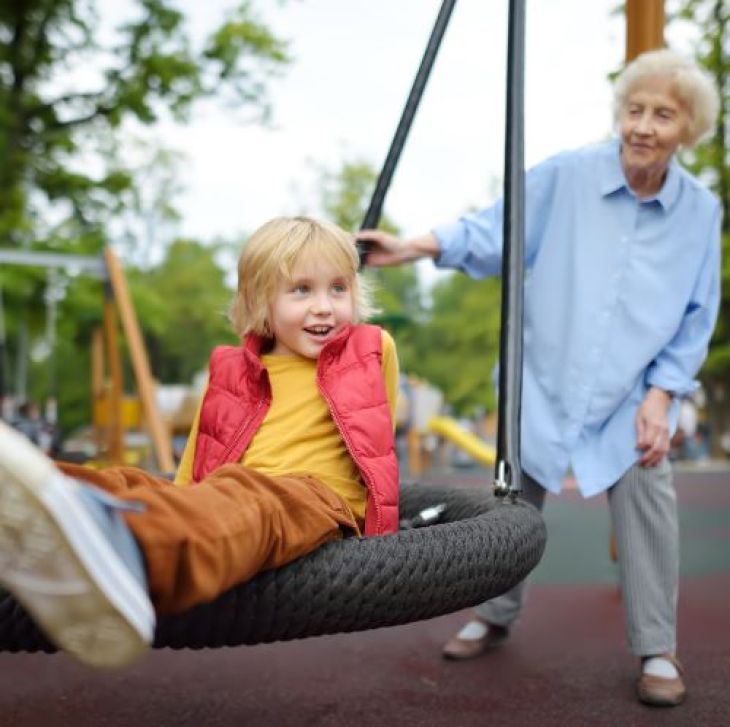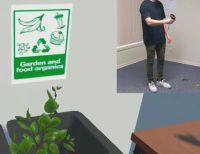21 August 2024
 Watching your children frolic through a playground is one of the many joys of being a parent or grandparent, but new research has found that engaging in play with kids could help improve mental health.
Watching your children frolic through a playground is one of the many joys of being a parent or grandparent, but new research has found that engaging in play with kids could help improve mental health.
Researchers from the University of South Australia (UniSA) and the University of Canberra (UC) have explored the benefits of intergenerational play through specially designed playgrounds for kids and adults.
Intergenerational play brings young children and older people together to engage in enjoyable and creative activities such as storytelling, using playground equipment, and games.
The world is facing an aging population, with the proportion of over 60-year-olds set to double and over 80-year-olds set to triple by 2050.
Associate Professor and Deputy Director of the Australian Research Centre for Interactive and Virtual Environments (IVE) at UniSA, Fanke Peng, says that society needs more public spaces that enable generational integration and interaction.
“There’s a social divide between older and younger people, and it leaves little room for meaningful interaction outside of families and classrooms,” she says.
“This age-based segregation causes feelings of isolation and social disconnectedness, which in turn can lead to depression, anxiety, suicidal ideation, and cognitive decline in older adults.”
“The facilitation of a playground designed for children and their parents and grandparents will foster intergenerational play and lead to positive mental health outcomes.”
In play space co-design workshops hosted by the researchers, participants aged 65 and over discussed the benefits of spending time with children and what a shared space could look like in their community.
Participants also reflected on their favourite play experience, their experiences playing with children, and what elements they would want or need in an intergenerational playground.
“[Spending time with children is] also good for my health. And my wellbeing. And it’s the participation. [That’s really] important,” one participant said. “Playing with the kids also makes you feel young. It gives you that sense of accomplishment that you haven’t lost those skills.”
Some participants noted the need for accessible amenities like shaded seating, water and toilets, and play equipment that is easy for older people to use while still meeting the needs of children.
Assoc Prof Peng says there are barriers that exist that make it harder for older people to engage in play, such as social attitudes and stigmas that play is only for children.
Removing these barriers is crucial in encouraging interaction between generations, and helping to address mental health concerns as people age, she says.
“Designing a space where children and older adults can engage with each other is crucial to dismantling the social stigma that stops people from playing once they’re older,” she says.
“We know that people start to feel like it’s not appropriate for them to use playgrounds or engage in children’s activities, and so there’s quite limited opportunities for intergenerational play.
“Creating these shared spaces that older adults can participate in means bridging the generational gap and taking care of the community.”
Assoc Prof Peng authored the chapter ‘We want to play too’ in the book Design for Dementia, Mental Health and Wellbeing.
…………………………………………………………………………………………………………………………
Researcher contact: Associate Professor Fanke Peng E: [email protected]
Media contacts: Maddie Rawlings, News and Communications Support Officer, UniSA E: [email protected]
Melissa Keogh, Communications Officer, UniSA M: +61 403 659 154, E: [email protected]
















